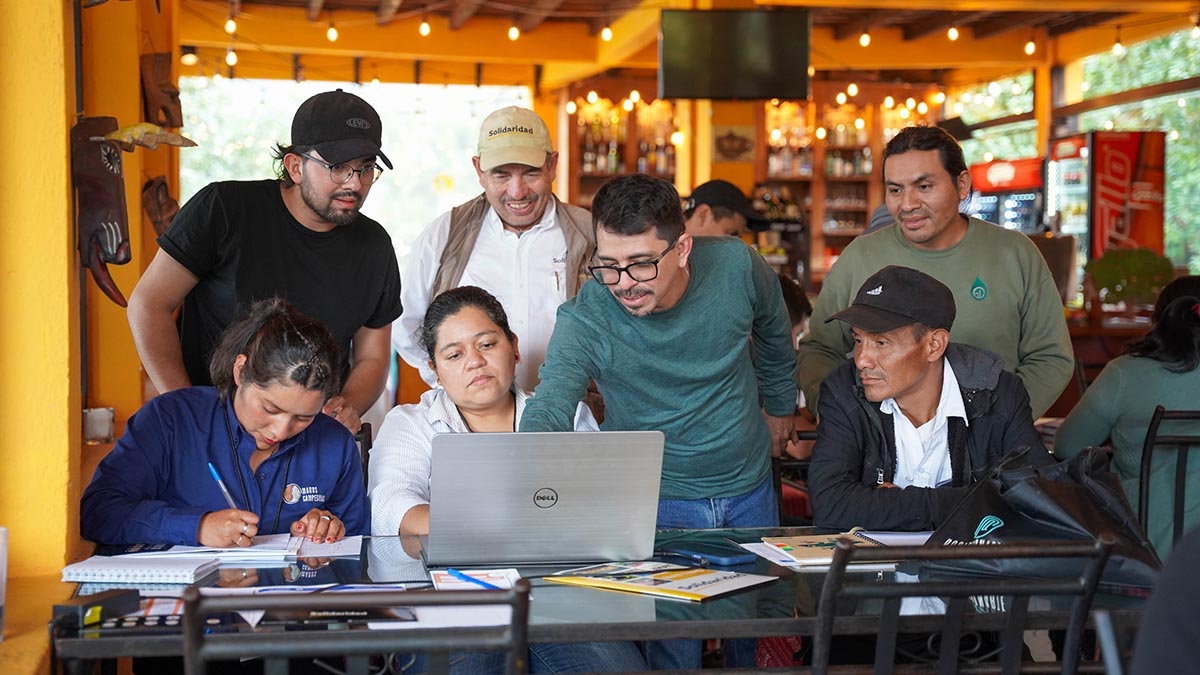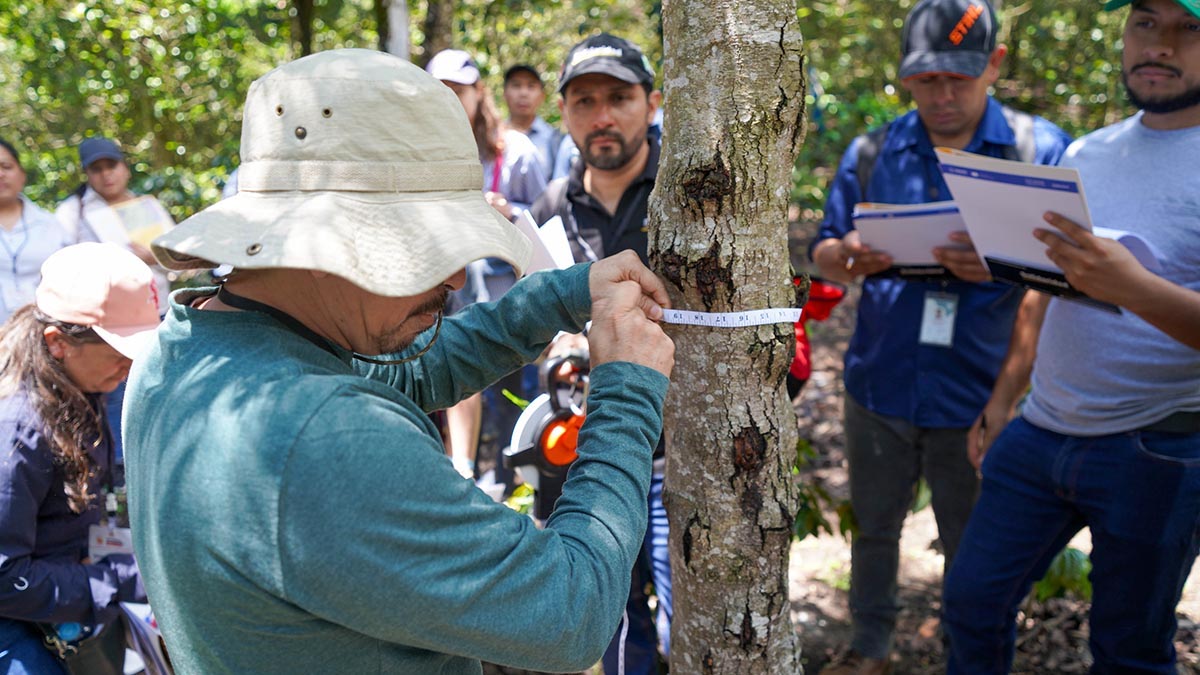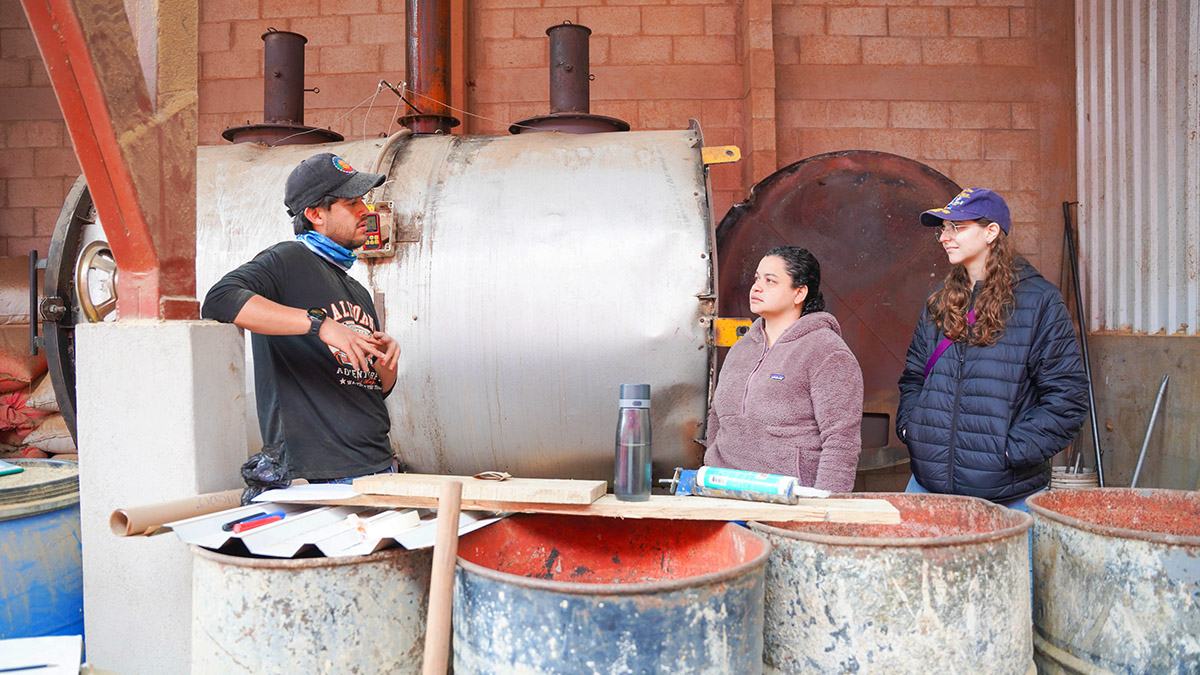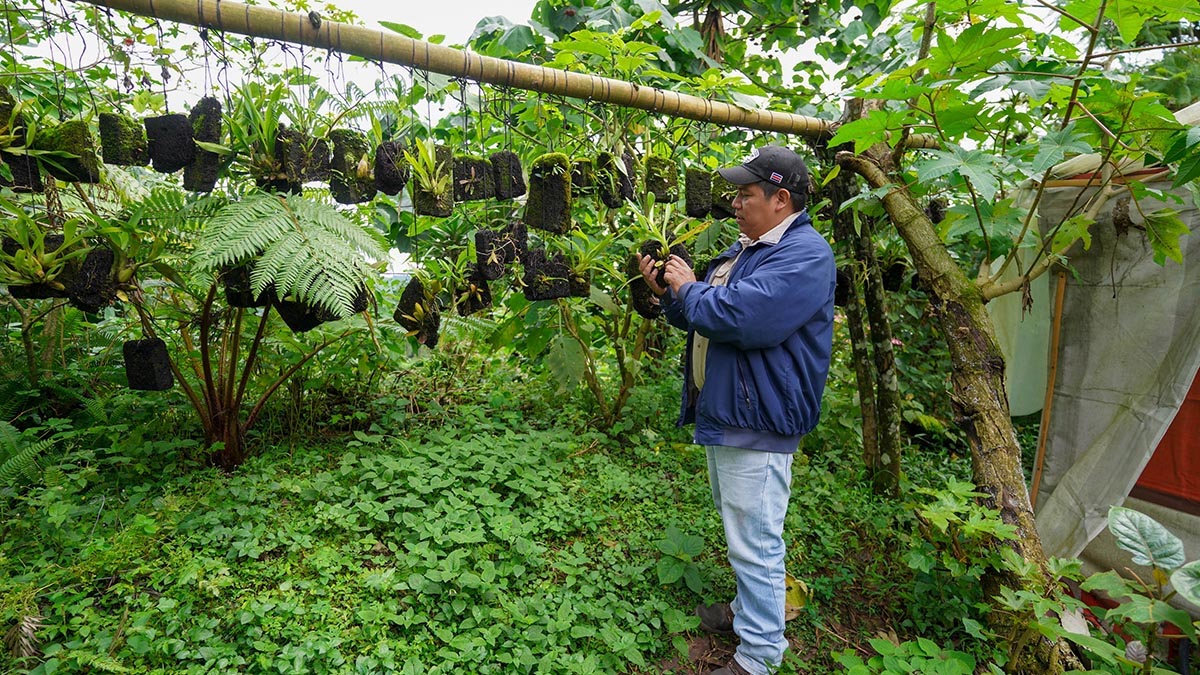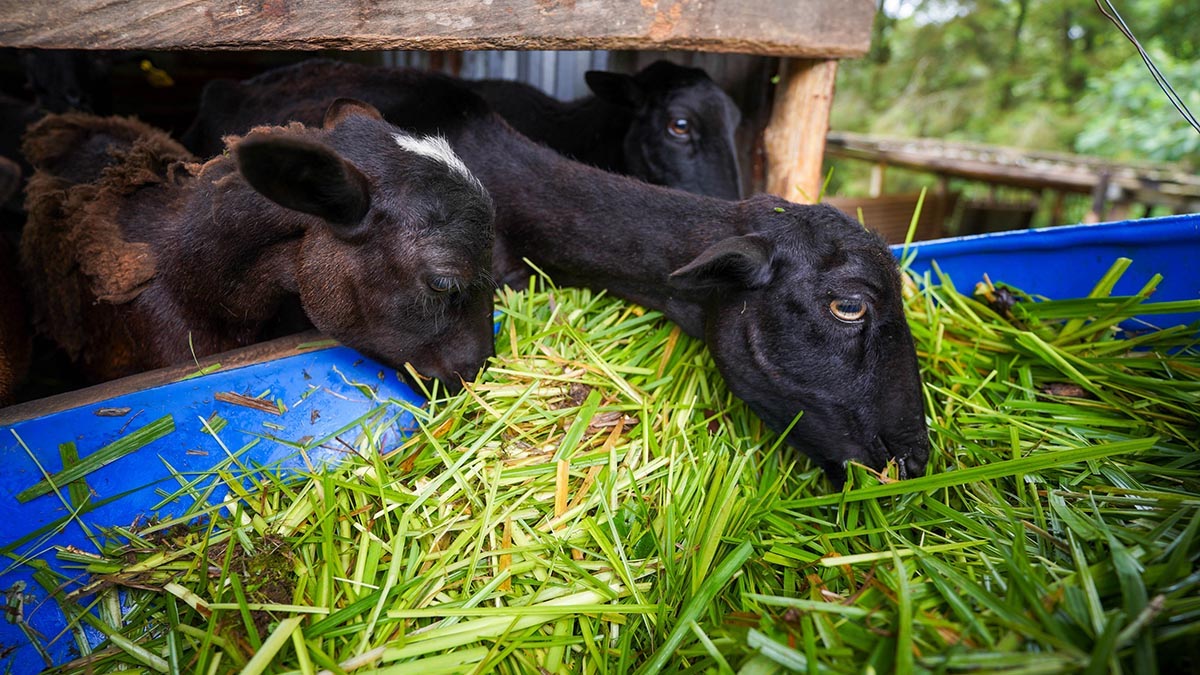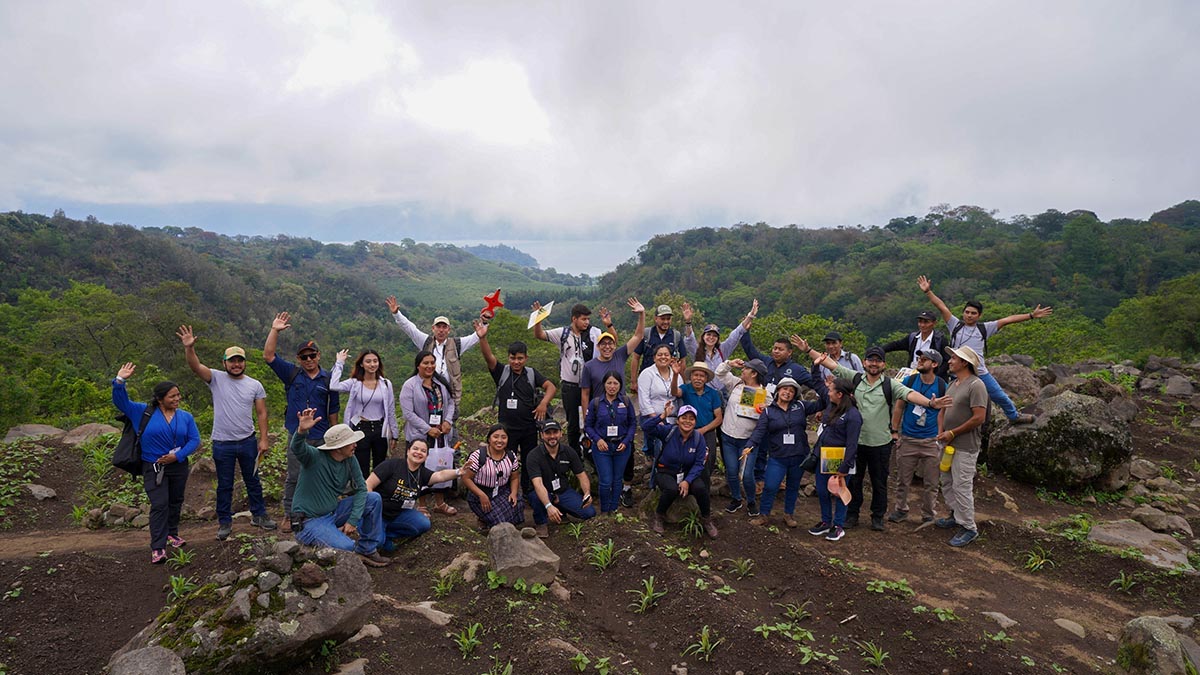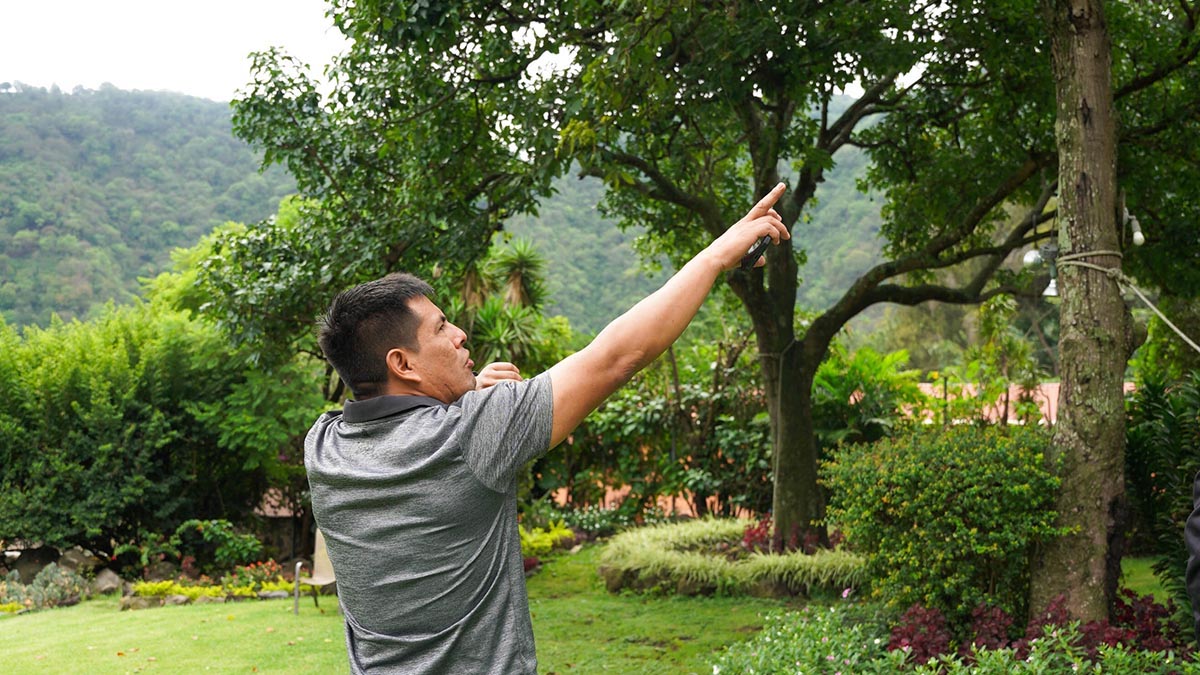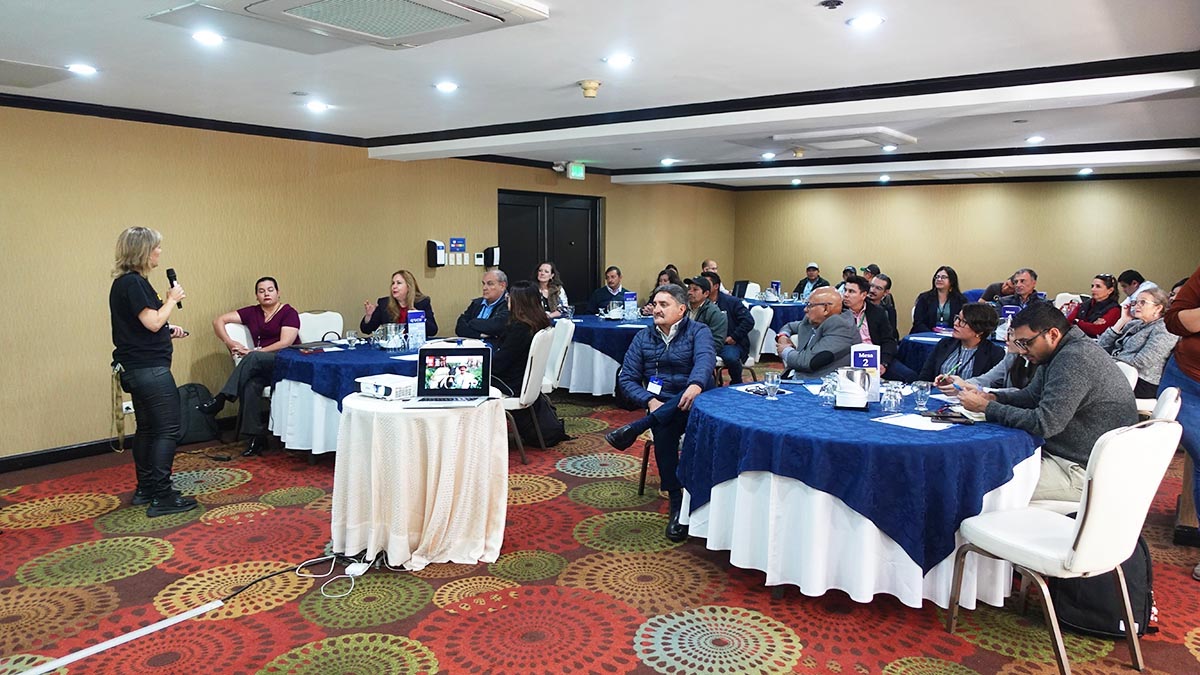Solidaridad supports sustainable coffee production in Guatemala through the Carbon Academy.
In addition to small business support, the Q’uch initiative strengthened the ability of organizations to support entrepreneurship in an effort to ensure that benefits of the initiative extend beyond the life of the project. Developed by Solidaridad and Oikocredit, the ambitious programme ran from June 2023 to October 2024, and focused on indigenous regions in the Guatemalan highlands.
The name Q’uch, meaning cooperation and reciprocity in the Mayan K’iche’ language, aligned with the initiative’s goal of fostering a sustainable and inclusive future for Guatemalan businesses. By mobilizing capital, providing technical assistance, and strengthening support organizations, Q’uch boosted the capacity of small and growing businesses to adopt climate-smart practices and develop business models that contribute to a more resilient economy.
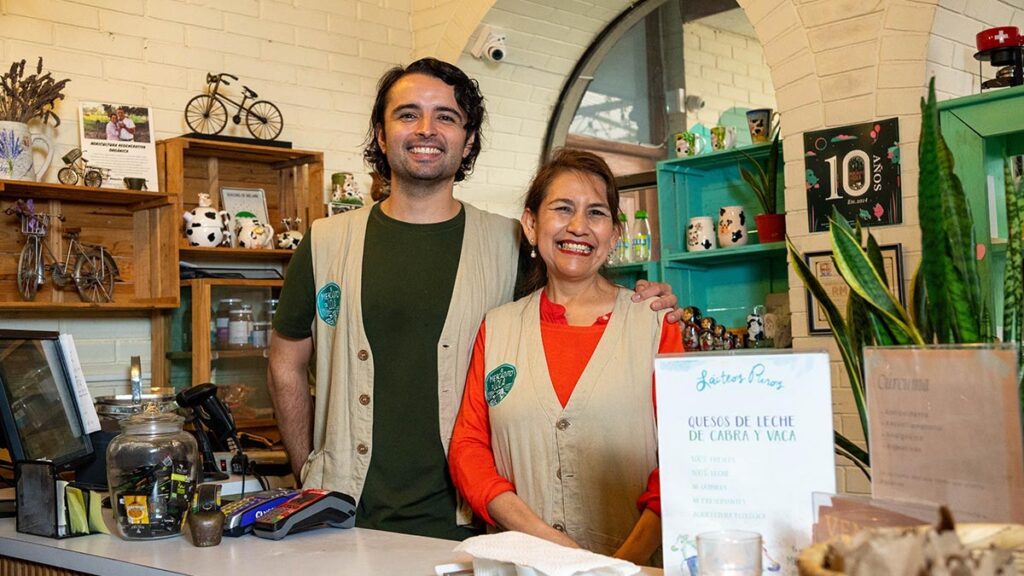
I’m thrilled to have collaborated with various organizations to empower them with tools and methodologies to foster climate-smart practices and strategies. Q’uch is driving a transformation in Guatemala’s business ecosystem.
Lucette Martínez, Solidaridad Operations Manager, Central America, and former Q’uch Project Manager
The initiative was structured around three key components.
Component 1: Invest in businesses that impact the community, planet and people
Objective: Mobilize capital to provide small and growing businesses with access to financing for climate-smart business models.
Results:
- Mobilized $1.78 million to finance 3 small businesses (coffee, solar energy systems leasing and vegetables).
- Linked 7 small businesses with 4 investors: Oikocredit, Isidro Fund, Progreso Fund and Beneficial Returns.
- Provided technical assistance to 4 small businesses to strengthen their coffee technicians’ capabilities.
- Conducted a deep analysis for 2 small businesses to improve internal control and administrative processes.
- Analyzed climate-smart business models for 5 small businesses and developed a study case.
- Provided feedback to 26 small businesses that were not selected for further support.
Component 2: Shaping a conscious community
Objective: Strengthen the capabilities of local support organizations to increase services to small and medium-sized enterprises for the development of climate-smart models and access to climate finance.
Results:
- Developed a methodology for designing climate-smart business models. Find the programme design here (in Spanish).
- Provided capacity building to 14 local support organizations (accelerators, microfinance institutions, business advisors).
- Supported 3 local support organizations in integrating the methodology into their service offerings.
- Facilitated replication of the methodology by 8 local support organizations, reaching 102 entrepreneurs and participants.
- Developed a guide to systematize local support organizations’ tools, learning, and experiences for climate-smart business models. Find the dissemination guide here (in Spanish).
- Participation was diverse in terms of geography, type of organization, area of impact, and size.
Component 3: Activating the power of change
Objective: Increase awareness of climate-smart business models in the Guatemalan business ecosystem.
Results:
- Registered 107 field technicians from 23 coffee organizations in Solidaridad’s Carbon Farming Academy.
- Facilitated participation of 19 coffee technicians from 16 organizations in the Carbon Academy Experience Exchange.
- Q’uch Business Meeting to facilitate knowledge sharing and networking among stakeholders.
The impacts of climate change have had increasing effects on Guatemalan farmers and their communities, and investment in climate resilient practices allows producers to adapt to changing conditions and ensure food security.
We must shift our approach to business, prioritizing sustainability and climate resilience. Businesses should consider their environmental and social impact, from resource consumption to product lifecycle.
Lucette Martínez, Solidaridad Operations Manager, Central America and former Q’uch Project Manager
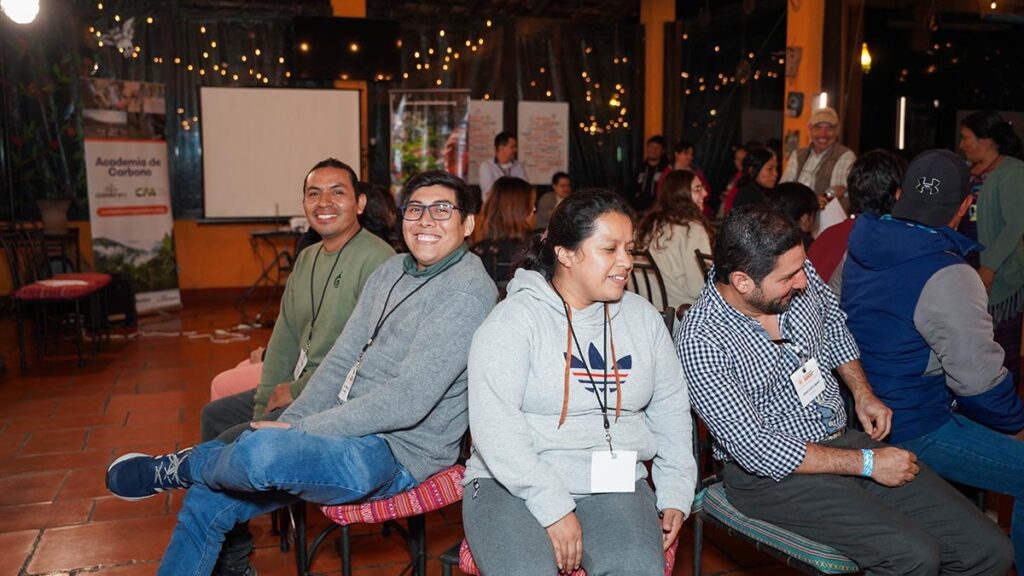
Looking to the Future
Throughout the initiative, Q’uch has strengthened SGBs, bolstered the entrepreneurial ecosystem, and promoted sustainable practices in Guatemala.
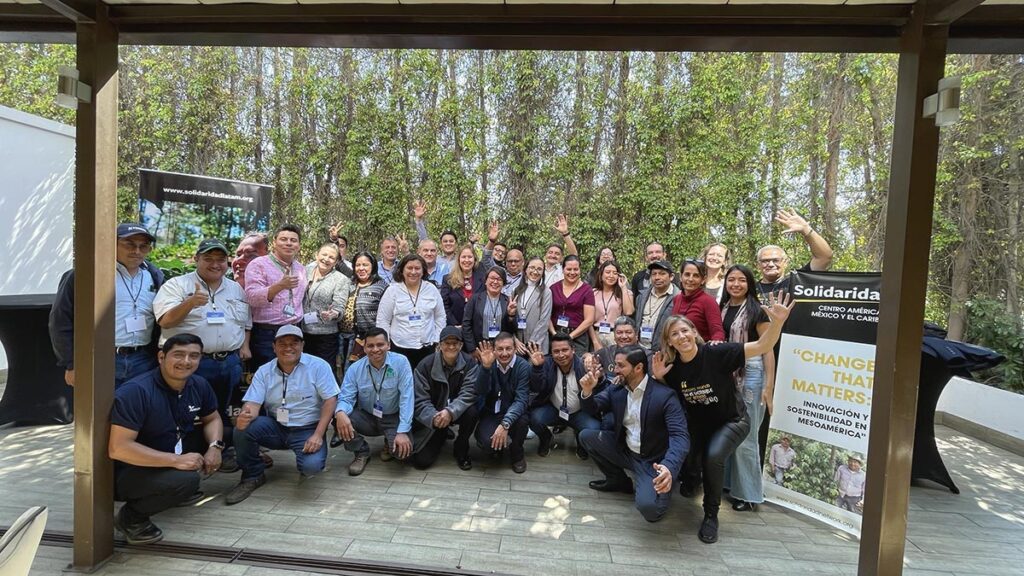
“Participating in Q’uch has been invaluable. We gained insights into Guatemala’s business ecosystem, understanding the specific needs of climate-smart companies. This knowledge has enabled us to refine our financing strategies to better support these businesses and contribute to a more sustainable future,” said Carlos Natareno, Regional Manager Mexico and Central America, Oikocredit.
Moving forward, Solidaridad continues to invest in sustainable businesses and supporting innovative solutions that can create a more equitable and resilient future for Central America.

